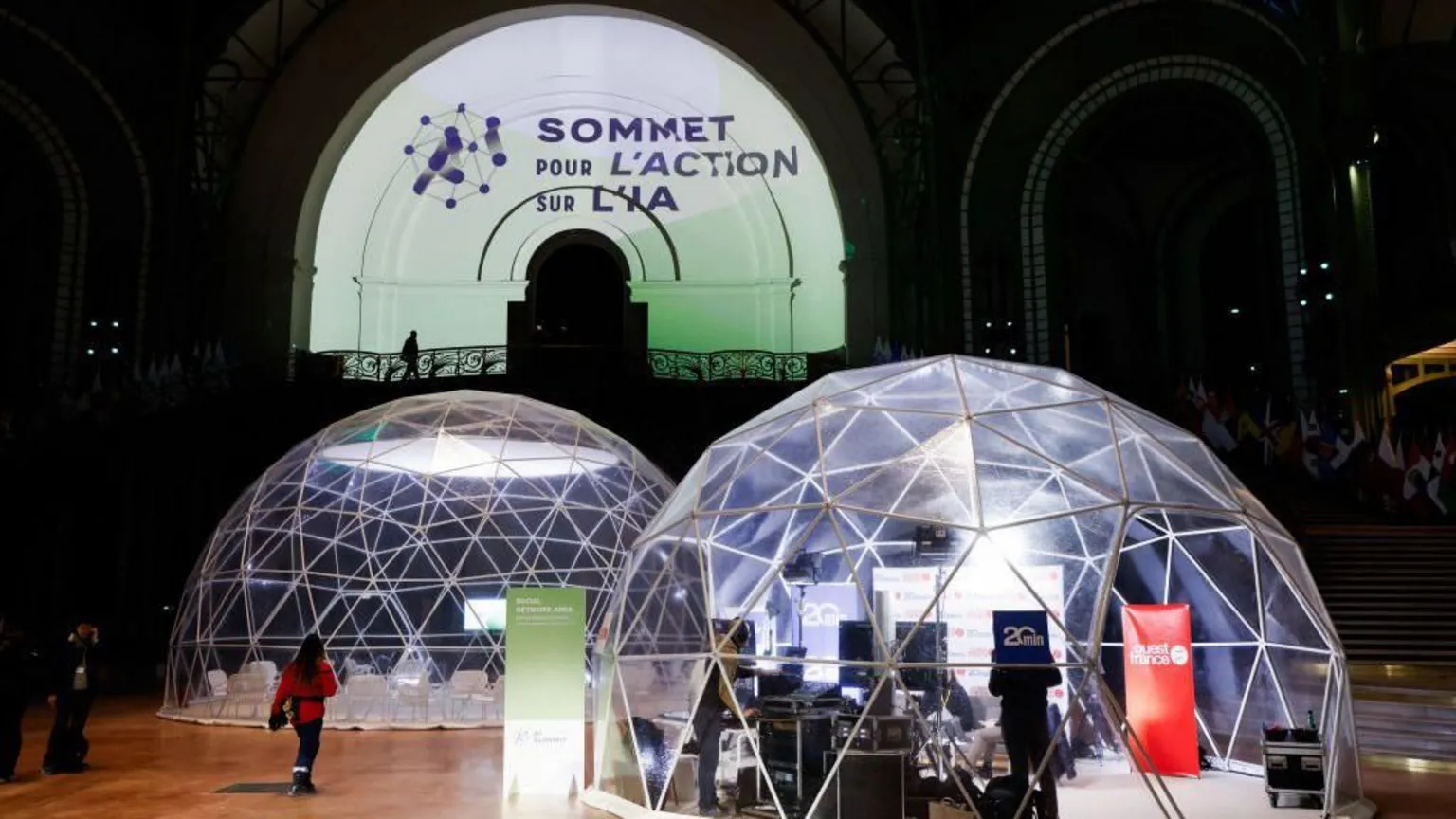The UK and US decline to sign global AI declaration.
Innovations and Initiatives Innovations and InitiativesPosted by NewAdmin on 2025-02-12 08:46:17 |
Share: Facebook | Twitter | Whatsapp | Linkedin Visits: 23

The UK and US have decided not to sign an international agreement on artificial intelligence (AI) at a global summit held in Paris. The agreement, which was signed by dozens of countries, including France, China, and India, outlines a commitment to an "open," "inclusive," and "ethical" approach to AI development.
In a brief statement, the UK government explained that it chose not to add its signature due to concerns over national security and "global governance." Meanwhile, US Vice President JD Vance voiced similar concerns, warning that excessive regulation of AI could "kill a transformative industry just as it’s taking off." He emphasized that AI should be seen as an opportunity that the Trump administration would not waste, prioritizing "pro-growth AI policies" over safety regulations. His remarks seemed to contrast with those of French President Emmanuel Macron, who stressed the importance of regulation in moving AI forward, saying, “We need these rules for AI to move forward.”
The UK has been a strong advocate for AI safety, with Prime Minister Rishi Sunak hosting the world’s first AI Safety Summit in November 2023. However, Andrew Dudfield, head of AI at the fact-checking organization Full Fact, warned that the UK’s decision not to sign the Paris agreement could undermine its credibility as a leader in safe, ethical, and trustworthy AI innovation. Despite this, UKAI, a trade body representing businesses in the AI sector, supported the decision, with CEO Tim Flagg expressing concern about balancing environmental responsibility with the growing energy demands of the AI industry. He viewed the UK government's refusal as a sign that it might pursue more pragmatic solutions, particularly in collaboration with US partners.
The agreement, signed by 60 countries, lays out several key priorities, including reducing digital divides, ensuring AI is accessible, transparent, safe, secure, and trustworthy, and making AI sustainable for both people and the planet. The summit also marked the first time AI energy use, which experts warn could soon rival the energy consumption of small countries, was discussed in such a context.
Michael Birtwistle from the Ada Lovelace Institute questioned what exactly in the statement the UK government disagreed with, noting that the government expressed general agreement with most of the declaration. However, it felt the statement lacked practical clarity on global governance and did not adequately address concerns around national security posed by AI. Despite not signing the agreement, the UK government did sign other agreements at the summit related to sustainability and cybersecurity.
Downing Street also emphasized that the UK's decision was not influenced by the US administration, stressing that the focus was on balancing opportunity with security in the UK's national interest. The summit, which included discussions on the societal, environmental, and governance impacts of AI, also highlighted the economic benefits and risks associated with AI innovation. European Commission President Ursula von der Leyen noted that Europe’s approach to AI would focus on innovation, collaboration, and embracing the power of open-source technology.
The summit also comes amid rising trade tensions between the US and Europe, with President Trump’s decision to impose tariffs on steel and aluminium imports affecting the UK and the EU. While the UK is not expected to retaliate immediately, it seeks to maintain positive relations with the Trump administration while also strengthening ties with the EU.
Search
Categories
Recent News
- Hyderabad Drug Bust: Uncovering a Sophisticated MDMA Network
- Hyderabad's Drug Bust: Uncovering a Sophisticated Network
- Hyderabad Rings in the New Year with Strict Rules
- Messi's India Tour: Hyderabad Gears Up After Kolkata Chaos
- Hyderabad Cracks Down on Drunk Driving: 407 Arrested in Weekend Blitz
- Hyderabad's Cyber Cops Foil Fraudsters: Quick Action Recovers Over Rs. 6 Lakh
- Hyderabad's Winter Fog: A Dangerous Drive
- Hyderabad's Drug Bust: Uncovering a Sophisticated Interstate Network
Popular News
- Navigating IPO Market Dynamics Amid Volatility and Regulatory Changes
- Innovative Green Practices and Environmental Initiative
- Massive Worldwide Microsoft Outage Disrupts Multiple Sectors
- తెలుగుదేశం పార్టీ - పేదరికాన్ని నిర్మూలించడంలో వాగ్దానం
- Universities Embrace Remote Learning Technologies Amidst Ongoing Pandemic